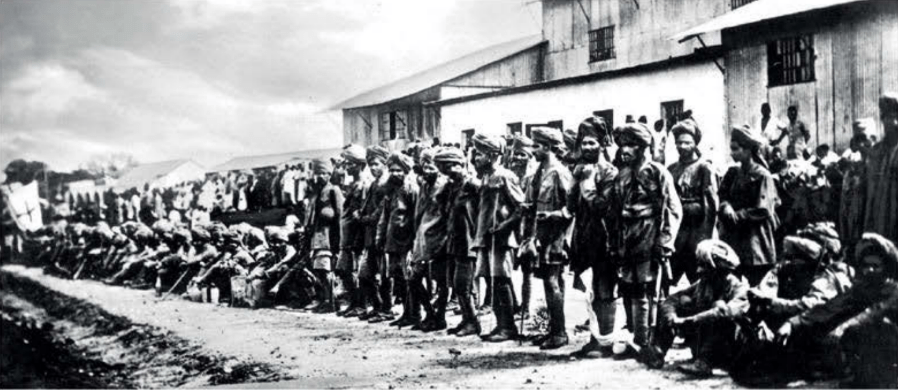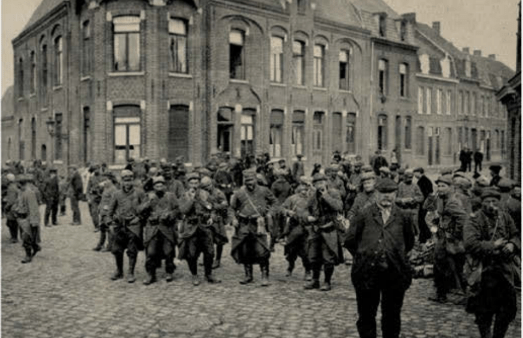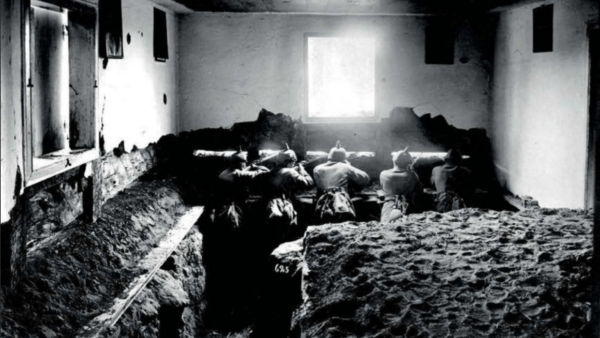WAR IN AFRICA – THU 06 AUG 1914 – MON 28 FEB 1916
The Scramble for Africa: European Colonial Powers and Rivalries in 1914
The “Scramble for Africa” had long since ended by 1914, and European colonial powers ruled nearly the whole continent. There were fierce rivalries. In 1898, a conflict over competing interests in Africa nearly led to war between France and Britain. Meanwhile, Germany watched in silent satisfaction as Britain faced humiliating losses in the South African War (1899–1902) from the white Boer republics.
Given the competing imperial ambitions, it was no surprise that Africa became a battlefi eld during the 1914–18 war. In addition to their immediate objectives, like protecting radio stations, the British and French also wanted to grow their empires at Germany’s expense, partially out of habit and partly to secure their own lands. Germany was at a major disadvantage in the war for Africa. Allied – principally British – sea-power cut Germany’s colonies off from the Fatherland, making it almost impossible to reinforce them.


War in Africa: British and French Conquest of German Colonies in Africa
It seemed that they could be captured at the Allies’ leisure. As early as 6–7 August 1914, German Togoland was invaded by British and French-offi cered African troops from neighbouring colonies, with the campaign being over 20 days later. Modern Namibia (German South-West Africa) was attacked in September 1914 by forces from the Union of South Africa. The invasion was compromised by a rebellion in South Africa of 12,000 Boer “bitter enders”, who had never been reconciled to the 1902 peace settlement with the British.
Thirty thousand Union troops were deployed before the uprising was crushed at the end of January 1915. Led by the South African Prime Minister, General Louis Botha, the Union forces resumed the offensive in South-West Africa and by midJuly 1915 had conquered the territory. It took from late August 1914 to February 1916, nearly 18 months of hard campaigning by British, French and Belgian troops – again mostly Africans offi cered by Europeans – before the German West African colony of the Cameroons was subdued. Similar to other operations in Africa, the army used a large number of African “porters” (about 40,000) to transport supplies in addition to their combat forces.


German East Africa: Lettow-Vorbeck’s Guerrilla Campaign and British Struggles
The harsh climate and disease were more formidable enemies than the Germans, with the porters suffering very badly, but despite these obstacles, in the end resistance was quickly extinguished. Things were very different in German East Africa. Here, in Tanganyika, African troops (Askaris) under the command of LieutenantColonel Paul von Lettow-Vorbeck waged a brilliant guerrilla campaign against the invading forces of the British Empire. He maximized the advantages which the diffi cult terrain bestowed on the defender and skilfully manoeuvred his lightly-equipped Askaris, consistently wrongfooting his British pursuers, who suffered badly from diseases such as malaria.
The campaign was marked by poor British generalship, including the humiliating failure to capture the port of Tanga from 3 to 5 November 1914. Thereafter, Imperial forces increased steadily in size but could not infl ict a decisive defeat on Lettow-Vorbeck. The battle came to an end two weeks after the European War finished, when he voluntarily surrendered after knowing of the Armistice. The German African empire had proved to be a far tougher nut than originally anticipated by the Allies.

Originally posted 2023-10-25 10:09:31.




